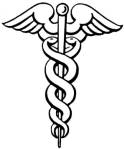 I recently received an e-mail with the subject line, '1895 8th grade final exam'. It supposedly showed how inadequate our modern education system is compared to that from a century ago. So, I took a look at it, and found the whole thing a little dubious.
I recently received an e-mail with the subject line, '1895 8th grade final exam'. It supposedly showed how inadequate our modern education system is compared to that from a century ago. So, I took a look at it, and found the whole thing a little dubious.
Here's the introduction from the e-mail.
Subject: 1895 8th grade final exam
Take this test and pass it on to your more literate friends..
What it took to get an 8th grade education in 1895...
Remember when grandparents and great-grandparents stated that they only had an 8th grade education? Well, check this out. Could any of us have passed the 8th grade in 1895?
This is the eighth-grade final exam from 1895 in Salina, Kansas, USA . It was taken from the original document on file at the Smokey Valley Genealogical Society And Library in Salina, and reprinted by the Salina Journal.
Let's leave all the subjective statements aside for now, and first determine whether this is actually a legitimate test that was administered to 8th graders in 1895. As it turns out, it is a real test from 1895, but it's not certain who it was intended for. As is claimed in the e-mail,the Smoky Valley Genealogical Society does indeed have a copy of the test. They have a transcript of the exam online, at the bottom of which they print the following claim:
The following document was transcribed from the original document in the collection of the Smoky Valley Genealogy Society, Salina, Kansas. This test is the original eighth-grade final exam for 1895 from Salina, KS. An interesting note is the fact that the county students taking this test were allowed to take the test in the 7th grade, and if they did not pass the test at that time, they were allowed to re-take it again in the 8th grade.
So, the Smoky Valley Genealogical Society at least believes that the exam was for eighth graders.
Truth or Fiction has looked into this claim as well. They have even posted some photos of the exam on their site. As they point out, nowhere does the exam indicate who it was intended for. As the authors of that site point out, many of the questions actually seem oriented more towards teachers than students.
Snopes also took a look at this exam. While they didn't confirm or debunk whether this particular exam was for 8th graders, they did show an example of a different exam from that era that was definitely intended for teachers, which seemed remarkably similar in scope and difficulty to the exam in question. They also included quotes from the administrators of that other exam, indicating that it was a bit difficult, and that teachers didn't do so well on it.
So, if I had to bet, I'd wager that this exam was intended for teaching candidates, not students. However, there's no way to tell for sure right now, so let's move on.
For the sake of argument, let's just assume, as the e-mail claimed, that this was an 8th grade final exam. How does it compare to a modern day education? The Snopes link above actually did cover this question pretty well, but having a daughter who just completed 7th grade, I think I'm in a good position to offer a closer perspective.
One note before looking at the questions - another site, Digital History, has gone through and answered everything. However, their answers are rather brief, sometimes incomplete, or not necessarily responding to what I'd imagine the exam was actually referring to. So, I've include a bunch of links below to more information responding to most of the questions.
Let's start off with the grammar section.
8th Grade Final Exam: Salina , KS - 1895
Grammar (Time, one hour)
1. Give nine rules for the use of capital letters.
2. Name the parts of speech and define those that have no modifications.
3. Define verse, stanza and paragraph
4. What are the principal parts of a verb? Give principal parts of 'lie,''play,' and 'run.'
5. Define case; illustrate each case.
6 What is punctuation? Give rules for principal marks of punctuation.
7 - 10. Write a composition of about 150 words and show therein that you understand the practical use of the rules of grammar.
First, here are links to give you answers to each of the questions: Capital Letters, Parts of Speech, verse, stanza, paragraph, verb parts, grammatical case, letter case, Punctuation.
Some of those might sound a little difficult at first blush, but once you look into the actual information that they're asking for, it's pretty clear that most of it is common knowledge, even for 8th graders. For example, if it was a multiple choice test, and it asked you to pick the option with the correct capitalization of a title, most people would probably get it right. Likewise for correct uses of punctuation, or verb tenses (parts).
And while grammar is important to a well rounded education, I do think people put too much emphasis on the rules being hard and fast, when really, they're just a description of how language is used by the people speaking it. Languages have survived just fine for thousands of years without scholars telling us not to split infinitives or use prepositions at the end of sentences. I've written about this before in Grammar Police, and SMBC covered it more humorously here.
Next is arthmetic.
Arithmetic (Time,1 hour 15 minutes)
1. Name and define the Fundamental Rules of Arithmetic.
2. A wagon box is 2 ft. Deep, 10 feet long, and 3 ft. Wide. How many bushels of wheat will it hold?
3. If a load of wheat weighs 3,942 lbs., what is it worth at 50cts/bushel, deducting 1,050 lbs. For tare?
4. District No 33 has a valuation of $35,000.. What is the necessary levy to carry on a school seven months at $50 per month, and have $104 for incidentals?
5. Find the cost of 6,720 lbs. Coal at $6.00 per ton.
6. Find the interest of $512.60 for 8 months and 18 days at 7 percent.
7. What is the cost of 40 boards 12 inches wide and 16 ft.. Long at $20 per metre?
8. Find bank discount on $300 for 90 days (no grace) at 10 percent.
9. What is the cost of a square farm at $15 per acre, the distance of which is 640 rods?
10. Write a Bank Check, a Promissory Note, and a Receipt
I'm not going to work out the answers, but here are links to information necessary to figure out the answers: Arithmetic Operations, Unit Conversion Tables, Compound Interest.
This section is little more than unit conversion, and it's the only math in the whole test. There's no algebra, and only basic geometry finding areas of rectangles. No probability, either. My daughter's math education has far surpassed what's in this test, and she's only in 7th grade.
U.S. History (Time, 45 minutes)
1. Give the epochs into which U.S. History is divided
2. Give an account of the discovery of America by Columbus
3. Relate the causes and results of the Revolutionary War.
4. Show the territorial growth of the United States
5. Tell what you can of the history of Kansas
6. Describe three of the most prominent battles of the Rebellion.
7. Who were the following: Morse, Whitney, Fulton, Bell, Lincoln, Penn, and Howe?
8. Name events connected with the following dates: 1607, 1620, 1800, 1849, 1865.
Here are the links to get the answers: U.S. History, Columbus, American Revolution, Territorial Growth, Kansas History, Civil War, Morse, Whitney, Fulton, Bell, Lincoln, Penn, Howe, 1607 - Jamestown, 1620 - Plymouth Colony, 1800 - Jefferson Election?, 1849 - California Gold Rush, 1865 - End of Civil War.
The U.S. history doesn't look too bad. I think my daughter would do decently on it. If it was more Texas centric instead of Kansas centric, she'd do better.
The orthography is section is pretty obscure.
Orthography (Time, one hour)
1. What is meant by the following: alphabet, phonetic, orthography, etymology, syllabication
2. What are elementary sounds? How classified?
3. What are the following, and give examples of each: trigraph, subvocals, diphthong, cognate letters, linguals
4. Give four substitutes for caret 'U.'
5. Give two rules for spelling words with final 'e.' Name two exceptions under each rule.
6. Give two uses of silent letters in spelling. Illustrate each.
7. Define the following prefixes and use in connection with a word: bi, dis-mis, pre, semi, post, non, inter, mono, sup.
8. Mark diacritically and divide into syllables the following, and name the sign that indicates the sound: card, ball, mercy, sir, odd, cell, rise, blood, fare, last.
9. Use the following correctly in sentences: cite, site, sight, fane, fain, feign, vane, vain, vein, raze, raise, rays.
10. Write 10 words frequently mispronounced and indicate pronunciation by use of diacritical marks and by syllabication.
Here are links to get some of the answers: Alphabet, Phonetics, Orthography, Etymology, Syllabication, Phonemes, Trigraph, Subvocalization, Diphthong, Cognate words, Linguals, Caret U, Silent letters, bi / bi, dis, mis, pre, semi, post, non, inter, mono, sub/sup, cite, site, sight, fane, fain, feign, vane, vain, vein, raze, raise, rays,
Some of this is pretty specialized, and probably difficult for most people. But out of the whole exam, this is the only difficult section.
On the other hand, Orthography must have changed in the past hundred years, because I had difficulty even finding some of the things these questions were referring to. For example, I'm pretty sure that the 'subvocals' I found is referring to something different than this exam, and I couldn't find any references to cognate letters that weren't references to this exam. So, it would be hard to fault modern day 8th graders for not knowing outdated terms.
And the final section, Geography:
Geography (Time, one hour)
1 What is climate? Upon what does climate depend?
2. How do you account for the extremes of climate in Kansas?
3. Of what use are rivers? Of what use is the ocean?
4. Describe the mountains of North America
5. Name and describe the following: Monrovia, Odessa, Denver, Manitoba, Hecla, Yukon, St. Helena, Juan Fernandez, Aspinwall and Orinoco.
6. Name and locate the principal trade centers of the U.S. Name all the republics of Europe and give the capital of each.
8. Why is the Atlantic Coast colder than the Pacific in the same latitude?
9. Describe the process by which the water of the ocean returns to the sources of rivers.
10. Describe the movements of the earth. Give the inclination of the earth.
Here are the links to get the answers: Climate, Kansas Climate, River Uses, Oceans, Mountain Ranges of North America, Monrovia, Odessa, Denver, Manitoba, or Hekla, Yukon, http://en.wikipedia.org/wiki/St._Helena, Juan Fernández Islands, Aspinwall, Orinoco.
Other than questions 5 & 6, this looks like stuff my daughter has covered already in school.
Notice that the exam took FIVE HOURS to complete.
Gives the saying 'he only had an 8th grade education' a whole new meaning, doesn't it?!
No wonder they dropped out after 8th grade. They already knew more than they needed to know!
No, I don't have all the answers! And I don't think I ever did!
Have fun with this...pass it on so we're not the only ones who feel stupid!!
That's it? Where's the science? Or the world history? Or government? Or art? Or literature? Or questions on how to do research? Or as I pointed out in the arithmetic section, where's the higher math? My daughter has had a much broader education than the hypothetical one from this test, and she won't finish with 8th grade for another year (and this is Texas, which doesn't exactly have a stellar reputation for education).
So, even if this was a real test for 8th graders from 1859, it doesn't reveal a dumbing down of education for modern day students. That's really no surprise, though. Just read books that describe schooling from that era, like Tom Sawyer, or Anne of Green Gables. I don't think anybody reading those books would wish for a return to that type of education. If anything, I think this exam shows just how good a modern day education is.
 As practically everybody knows by now, the Supreme Court has upheld the Affordable Care Act. To be honest, I don't actually know enough detail about the full law to know how good of a solution it is. I can say, from what I have heard of it, that I think it's decent. I've written before about universal health care, and why I thought it was a good idea, if implemented properly. In that entry, I linked to a good article on Denialism Blog, Are Patients in Universal Healthcare Countries Less Satisfied?, which did a good job of comparing the U.S. health care system to those of other industrialized nations (the U.S. doesn't fare so well). When the Affordable Care Act was first passed, Denialism Blog had another article, Healthcare reform, which is a good summary of the law, giving both pros and cons (in his opinion, most of the cons seem to be that it didn't go far enough in overhauling the system). So like I said, from what I have read of 'Obamacare', it sounds like a decent start to reforming our health care system.
As practically everybody knows by now, the Supreme Court has upheld the Affordable Care Act. To be honest, I don't actually know enough detail about the full law to know how good of a solution it is. I can say, from what I have heard of it, that I think it's decent. I've written before about universal health care, and why I thought it was a good idea, if implemented properly. In that entry, I linked to a good article on Denialism Blog, Are Patients in Universal Healthcare Countries Less Satisfied?, which did a good job of comparing the U.S. health care system to those of other industrialized nations (the U.S. doesn't fare so well). When the Affordable Care Act was first passed, Denialism Blog had another article, Healthcare reform, which is a good summary of the law, giving both pros and cons (in his opinion, most of the cons seem to be that it didn't go far enough in overhauling the system). So like I said, from what I have read of 'Obamacare', it sounds like a decent start to reforming our health care system.
 I recently received an e-mail with the subject line, '1895 8th grade final exam'. It supposedly showed how inadequate our modern education system is compared to that from a century ago. So, I took a look at it, and found the whole thing a little dubious.
I recently received an e-mail with the subject line, '1895 8th grade final exam'. It supposedly showed how inadequate our modern education system is compared to that from a century ago. So, I took a look at it, and found the whole thing a little dubious.


 Another month has come and gone, so it's once again time for me to go through the server logs and tally up the most popular pages on this site.
Another month has come and gone, so it's once again time for me to go through the server logs and tally up the most popular pages on this site.